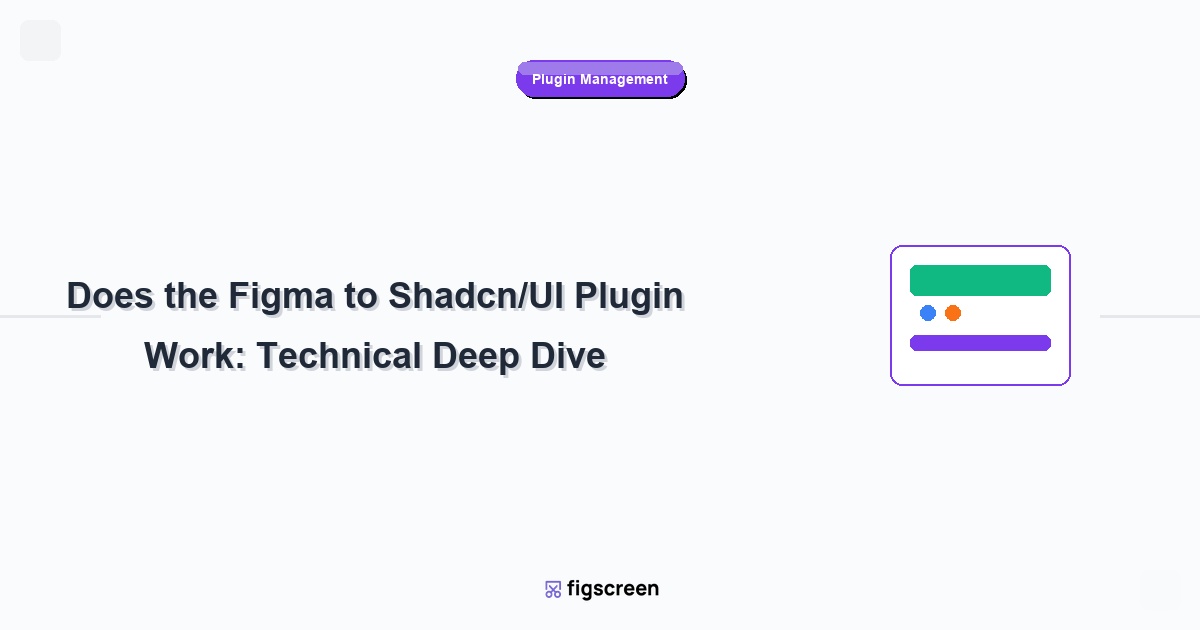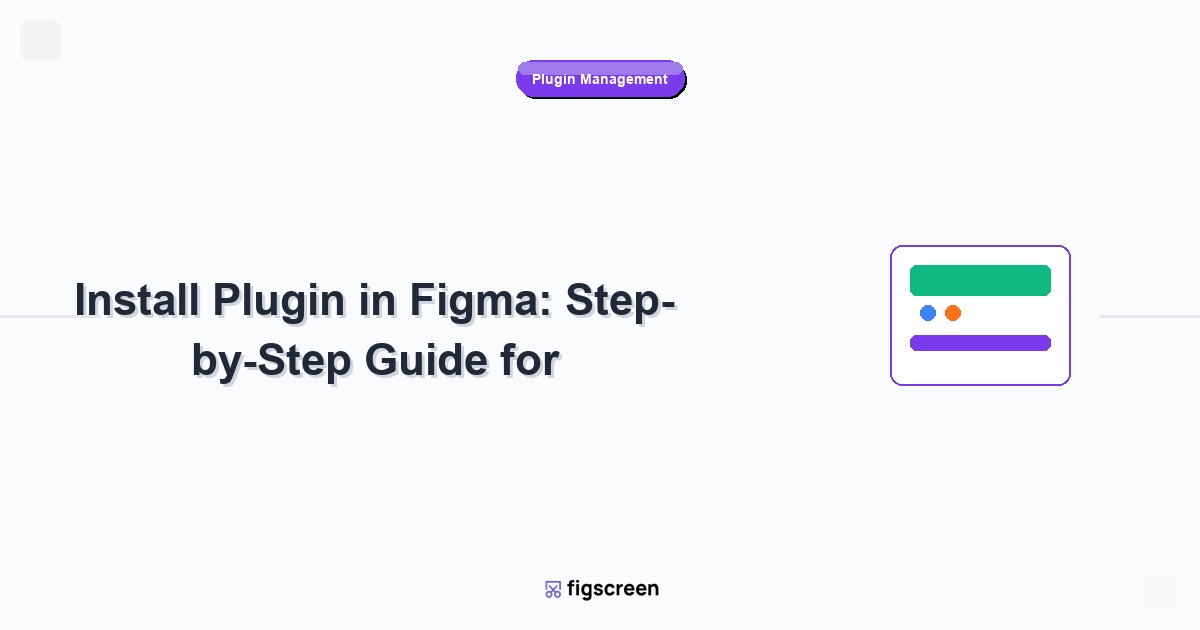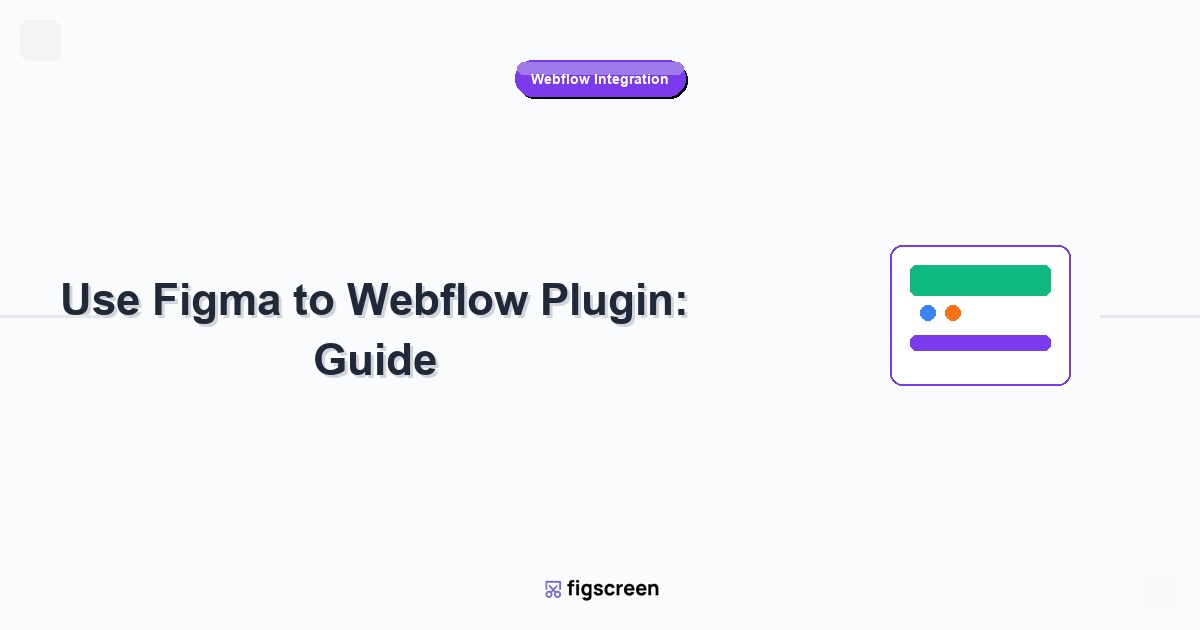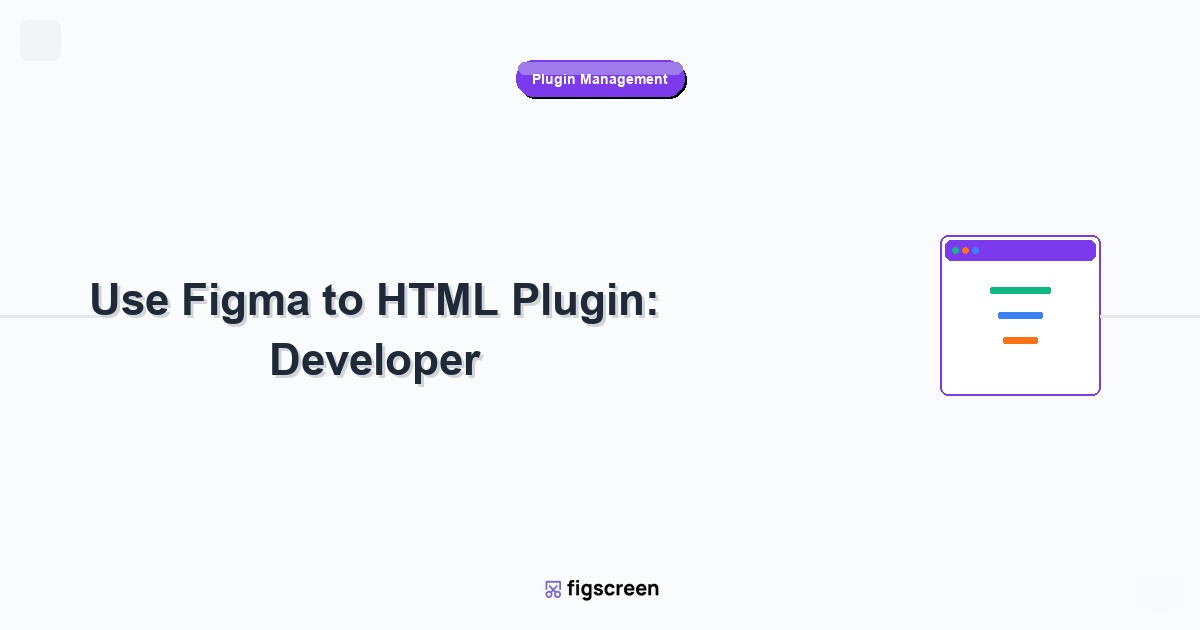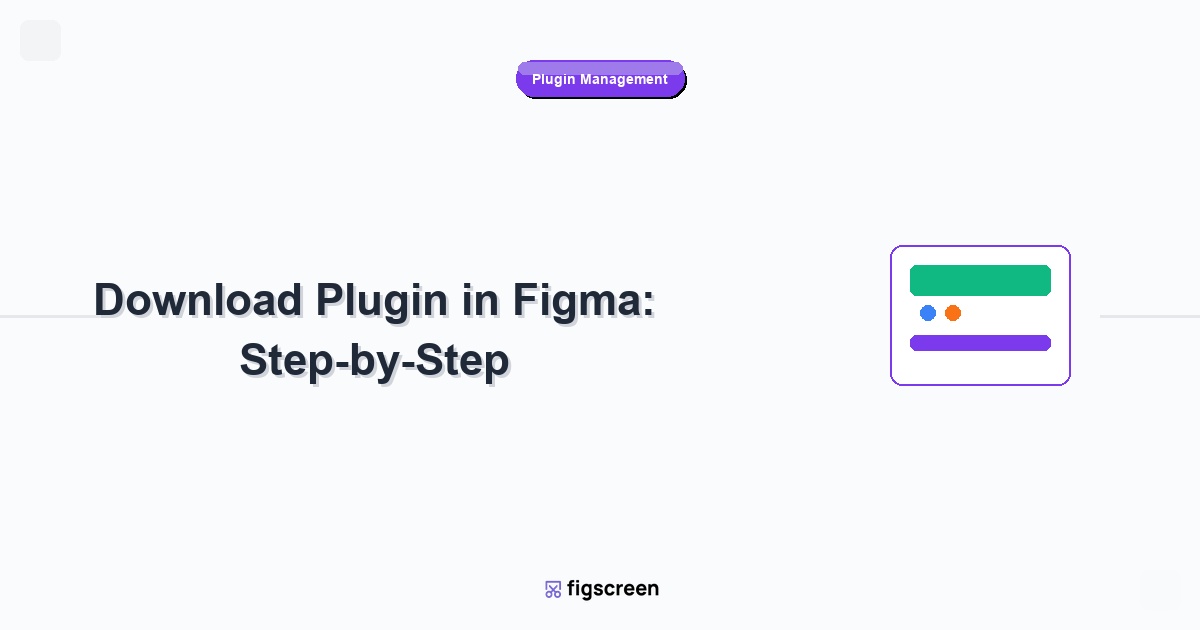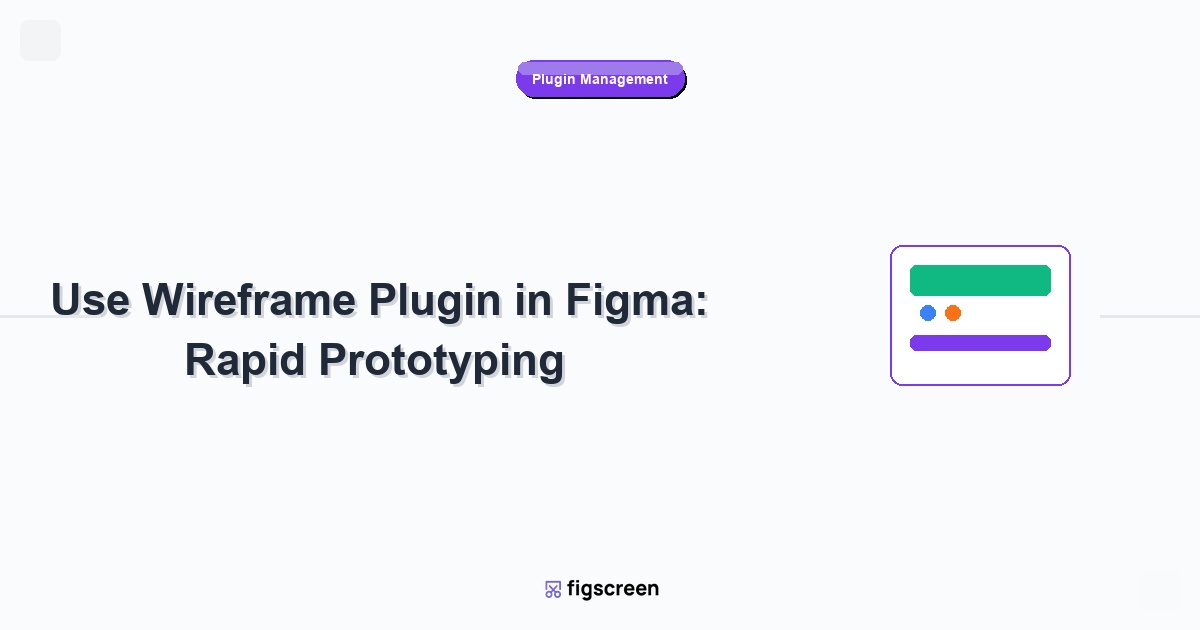Adding icon plugins to Figma transforms your design workflow by providing instant access to thousands of professionally designed icons. Whether you’re building interfaces, creating presentations, or designing marketing materials, the right icon plugin can dramatically speed up your process and improve design consistency. This guide covers everything you need to know about adding and optimizing icon plugins in Figma’s 2025 interface.
Why Use Icon Plugins in Figma?
Benefits of Icon Plugins
Icon plugins offer significant advantages over manual icon management:
- Instant Access – Browse thousands of icons without leaving Figma
- Consistent Style – Maintain design consistency across projects
- Time Savings – No need to search external websites or create icons from scratch
- Regular Updates – Access to new icons as they’re added to libraries
- Customization Options – Modify colors, sizes, and styles within Figma
- Team Consistency – Everyone uses the same icon libraries
Types of Icon Plugins Available
Different icon plugins serve various needs:
- General Icon Libraries – Comprehensive collections (Iconify, Feather Icons)
- Specialized Sets – Industry-specific or themed icons
- Brand Icon Collections – Social media, company logos, and brand symbols
- Custom Icon Managers – Tools for organizing your own icon collections
Top Icon Plugins to Add in 2025
Iconify – The Ultimate Icon Library
Iconify is the most comprehensive icon plugin for Figma:
- 100,000+ Icons – Massive collection from multiple icon sets
- Popular Libraries – Material Design, Feather, FontAwesome, and more
- Advanced Search – Find icons by keyword, style, or category
- Vector Quality – All icons are scalable vectors
- Free Access – Most icons are completely free to use
Feather Icons – Clean and Minimal
Perfect for modern, clean designs:
- Consistent Style – Unified 24px grid system
- Minimal Design – Clean, simple aesthetics
- Developer Friendly – Popular in web development
- Customizable – Easy to modify stroke width and colors
Material Design Icons – Google’s Design System
Official Material Design icons for Android and web:
- Official Google Icons – From Google’s design system
- Multiple Styles – Outlined, filled, rounded, and sharp variants
- Consistent Guidelines – Follow Material Design principles
- Regular Updates – New icons added frequently
Step-by-Step: Adding Icon Plugins to Figma
Method 1: Installing Through Community Tab
The primary way to add icon plugins:
- Open Community Tab – Click “Community” in the top navigation
- Search for Icon Plugins – Type “icons” or specific plugin names
- Filter by Plugins – Click “Plugins” to show only plugin results
- Select Your Plugin – Click on the icon plugin you want
- Review Plugin Details – Check description, reviews, and permissions
- Click “Install” – Add the plugin to your Figma account
- Confirm Installation – Verify the plugin appears in your Actions menu
Method 2: Installing Through Actions Menu
Add plugins while working in a design file:
- Open Actions Menu – Click the Actions button (▶️) in toolbar
- Select “Plugins” – Choose “Plugins” from dropdown
- Click “Browse Community” – Opens plugin browser
- Search for Icon Plugins – Find the icon plugin you want
- Install Directly – Add plugin without leaving your file
Setting Up and Configuring Icon Plugins
Initial Plugin Configuration
Configure your icon plugin for optimal workflow:
- Open the Plugin – Launch your newly installed icon plugin
- Review Settings – Look for preferences or configuration options
- Set Default Size – Configure preferred icon dimensions
- Choose Color Preferences – Set default icon colors
- Select Favorite Libraries – Choose preferred icon sets
- Test Basic Functionality – Insert a few icons to verify setup
Customizing Icon Plugin Preferences
Optimize settings for your workflow:
- Default Icon Size – Set standard dimensions (24px, 32px, etc.)
- Color Settings – Configure default colors for your design system
- Search Preferences – Set preferred icon libraries to search first
- Import Behavior – Choose how icons are added to your canvas
Using Icon Plugins Effectively
Best Practices for Icon Selection
Choose icons strategically for better designs:
- Maintain Consistency – Use icons from the same library or style
- Consider Context – Choose icons that match your design’s tone
- Test Scalability – Ensure icons work at different sizes
- Check Accessibility – Verify icons are recognizable and clear
Efficient Icon Search Strategies
Find the right icons quickly:
- Use Descriptive Keywords – Search for function, not just appearance
- Try Synonyms – Use alternative terms if first search fails
- Browse by Category – Explore categorical organization
- Use Style Filters – Narrow down by outline, filled, etc.
Icon Customization Techniques
Modify icons to fit your design system:
- Resize Appropriately – Scale icons to match your grid system
- Apply Brand Colors – Change colors to match your palette
- Adjust Stroke Width – Modify line thickness for consistency
- Create Variants – Build different states (active, inactive, hover)
Advanced Icon Plugin Features
Batch Operations
Many icon plugins support bulk operations:
- Multiple Selection – Add several icons at once
- Batch Resizing – Resize multiple icons simultaneously
- Color Synchronization – Apply colors to multiple icons
- Style Consistency – Ensure uniform appearance across icon sets
Integration with Design Systems
Connect icon plugins with your design system:
- Create Icon Components – Turn favorite icons into reusable components
- Build Icon Libraries – Organize frequently used icons
- Style Documentation – Document icon usage guidelines
- Team Sharing – Ensure team uses consistent icon sets
Managing Multiple Icon Plugins
Plugin Organization Strategies
Efficiently manage multiple icon sources:
- Categorize by Use Case – Different plugins for different project types
- Prioritize by Quality – Lead with your best icon plugins
- Avoid Redundancy – Don’t install plugins with significant overlap
- Regular Review – Periodically assess which plugins you actually use
Workflow Optimization
Streamline your icon selection process:
- Start with Primary Plugin – Begin searches with your best icon source
- Use Backup Options – Have alternative plugins for specialized needs
- Create Shortcuts – Learn keyboard shortcuts for frequently used plugins
- Build Icon Collections – Save commonly used icons for quick access
Troubleshooting Icon Plugin Issues
Common Installation Problems
Resolve typical icon plugin installation issues:
- Plugin Doesn’t Appear – Refresh Figma or clear cache
- Installation Fails – Check internet connection and try again
- Permission Errors – Verify account permissions
- Compatibility Issues – Ensure plugin supports your Figma version
Performance Optimization
Maintain good performance with icon plugins:
- Close Unused Plugins – Don’t keep all icon plugins open
- Limit Concurrent Usage – Use one icon plugin at a time
- Clear Plugin Cache – Regularly clear temporary plugin data
- Monitor Memory Usage – Watch for plugins that consume excessive resources
Icon Quality Issues
Address problems with icon appearance:
- Pixelated Icons – Ensure you’re using vector versions
- Inconsistent Sizing – Check plugin size settings
- Color Problems – Verify color format compatibility
- Missing Icons – Update plugin or try alternative search terms
Building an Icon System with Plugins
Creating Consistent Icon Libraries
Build a cohesive icon system using plugins:
- Choose Primary Style – Select one main icon style (outline, filled, etc.)
- Set Standard Sizes – Define icon dimensions for different use cases
- Establish Color Palette – Create consistent color schemes
- Document Guidelines – Write rules for icon usage
- Create Master Components – Build reusable icon components
Team Icon Management
Coordinate icon usage across your team:
- Standardize Plugin Choices – Ensure team uses same icon plugins
- Share Icon Libraries – Create shared Figma libraries with approved icons
- Train Team Members – Educate team on icon selection principles
- Regular Audits – Review and maintain icon consistency
Advanced Icon Plugin Workflows
Automated Icon Integration
Streamline icon workflows with automation:
- Template Setup – Create templates with pre-configured icon placeholders
- Batch Processing – Use plugins that support bulk icon operations
- Style Synchronization – Automatically apply consistent styling
- Version Control – Track icon changes in design systems
Cross-Platform Icon Management
Coordinate icons across different design tools:
- Export Consistency – Ensure icons export properly for development
- Format Optimization – Use appropriate formats for different platforms
- Naming Conventions – Maintain consistent icon naming
- Documentation Sync – Keep icon documentation updated
Future-Proofing Your Icon Workflow
Staying Current with Icon Trends
Keep your icon usage modern and relevant:
- Follow Design Trends – Stay informed about icon design evolution
- Update Plugin Libraries – Regularly update your icon plugins
- Experiment with New Styles – Try emerging icon styles periodically
- Gather User Feedback – Test icon recognition with users
Preparing for Plugin Changes
Adapt to evolving plugin ecosystem:
- Backup Important Icons – Save critical icons to your design system
- Document Dependencies – Track which projects use which icon plugins
- Plan Migration Strategies – Prepare for potential plugin discontinuation
- Stay Flexible – Be ready to adapt to new icon plugin options
Conclusion
Adding icon plugins to Figma is one of the most impactful improvements you can make to your design workflow. By choosing the right plugins, configuring them properly, and integrating them into a systematic approach to icon management, you’ll save time, improve consistency, and enhance the overall quality of your designs.
Start with one comprehensive icon plugin like Iconify, master its features, and then gradually expand your toolkit based on specific project needs. Remember that the goal is not to have every icon plugin available, but to have the right tools that serve your design process effectively.
Complete Your Plugin Toolkit
While icon plugins handle symbols and graphics, Figscreen provides the screenshot foundation for your design research. Add both to create a comprehensive design workflow.
